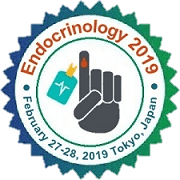
Sanjay P Gandhi
Gandhi Clinic, India
Title: The future of insulin pump therapy in T1DM and T2DM patients in India and developing countries-Resale and recycle-A new vision
Biography
Biography: Sanjay P Gandhi
Abstract
Aim: Can we change the Economics of insulin pump Therapy in India and other developing countries? We want to find the answer to this question, thereby making the pumps available to the needy T1DM and T2DM patients at much lower prices than the present costs. Methods: We have studied the total nine patients using the insulin pumps at our centre, Gandhi Clinic in Pune, India. Out of nine patients, four are IDDM and others are T2DM. We have also tried IPT in a lady retired teacher who is 72 years old (T2DM). Out of 9 patients, three Insulin Pumps are lying at our clinic, two pumps due to sad demise of the patients and one pump due to the adverse advice by another doctor. The relatives of the patients are at double loss, moneywise and person loss. Results: Many healthcare professionals compare a car with pump. Frequently, we say if someone can afford a car then he would easily afford the insulin pump. In India, we have a scheme to buyback and refurbish the used cars by the manufacturer and the resale of the same car is possible at a much lower cost than the cost of the new car of same brand and the manufacturer. Discussion: Since the fact prevails in India and developing countries that availability of insulin is a difficult task at times, insulin pump therapy is a farfetched dream. There must be more than few thousand pumps in India which are resalable. These pumps can be refurbished and can be made available to the needy and willing patients of T1DM as well as T2DM patients in these resource constrained countries. We want the whole world brain volume to think on this sensitive issue.

